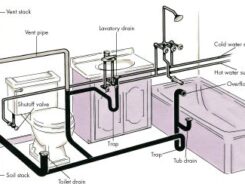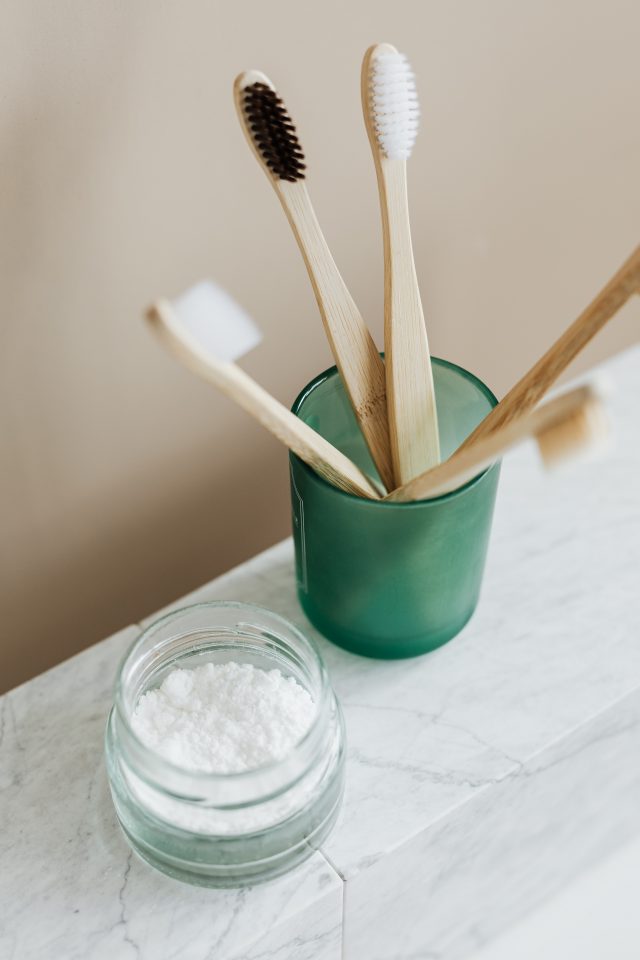Dental bridges usually have a lifespan of five to 10 years and sometimes longer with good care. When designed, produced, and maintained properly, they can even last a lifetime.
However, the operative term is proper care. If you don’t maintain your dental bridges correctly, they won’t last long and may even require repairs or a replacement prematurely.
Dental bridges are usually made of ceramics or porcelain bonded to an underlying metal frame. If you don’t practice good oral hygiene habits, you can cause the appliances to fail.
This is because bacteria can enter under the bridge through the crowns and cause decay to develop in the abutment teeth. This, in turn, can lead to the fracture of the abutment teeth.
Additionally, problems in the bridge itself can occur. These include damage in the underlying metal and fractures on the coating and pontic.
These are issues that you can also avoid if you get dental bridges in Fort Lauderdale by having good oral hygiene habits, which should include visiting your dentist at least twice a year.
When you see your dentist on schedule, he or she will check your teeth and overall oral health, allowing him or her to spot any developing dental problems and provide the necessary treatment to prevent their onset.
Maintaining Your Dental Bridges
Below are five tips for caring for and maintaining your dental bridges properly:
1. Brush up on your oral hygiene practices.
As mentioned, good oral hygiene habits are crucial for maintaining the excellent condition of your dental bridges and prolonging their functionality. If you have not been particular with your dental practices, start working on them now.
Make it a habit to brush twice daily, morning and night. Follow proper brushing techniques and ensure you clean your dental bridges, not only your natural teeth.
Choose a toothbrush that can clean all hard-to-reach areas. Additionally, make sure you use one that has soft bristles since they are gentle on the teeth and gums.
Make sure you floss every day as well to remove leftover food, debris, and bacteria between your teeth. However, be careful about flossing hours and days after getting your dental bridges since you may dislodge them accidentally.
Additionally, consider using an antiseptic mouthwash daily.
Keep in mind that good oral hygiene helps prevent bacteria from forming, which can lead to plaque, tartar, and calculus. These issues won’t only affect your dental bridges but also your remaining natural teeth and overall dental health.
2. Add a water flosser to your must-have oral hygiene tools.
A water flosser or oral irrigator is a dental care device that sprays water to remove plaque and food particles stuck between the teeth and below the gum line.
The stream of high-pressure pulsating water this device releases is strong enough to remove plaque between the teeth and gum line, making it more effective than dental floss.
A water flosser is also a handy device to use for cleaning the areas around dental bridges. The combined effect of the released stream and pulsating water effectively remove leftover food particles and bacteria under and around the dental appliances.
To keep your dental bridges and mouth clean, rinse with mouthwash after using your oral irrigator.
3. Avoid hard foods.
Dental bridges and crowns are often made of ceramic. Although this material is strong and durable, like natural teeth, it can still get damaged if enough pressure or force is placed on the dental work.
Because of this reason, once you start wearing dental bridges, avoid biting or chewing hard foods. These include raw vegetables, candies, and even ice since they can dislodge the bridge. Moreover, you can damage the structure of the dental appliance itself, which may require a replacement.
Avoid using your teeth as an opening or cutting tool, too. Do not open bottles or tear envelopes with your natural teeth and dental bridges.
These unhealthy habits can damage not only your dental appliances, but also your natural teeth.
4. Know the signs that your dental bridges may require fixing.
When you have dental bridges, the abutment teeth will most likely be covered. Because of this, the signs of decay and other damage are often invisible and you will not be able to notice them immediately.
If you feel some sensitivity in the teeth or gums around a dental bridge when brushing, this could be a sign that it needs repair. It can also be a sign that decay is starting in one or two neighboring teeth. In this instance, see your dentist immediately.
If the abutment teeth are damaged or compromised, the dentist will remove the bridge. Once the supporting teeth are treated and still deemed healthy, your specialist will attach a replacement bridge.
In case restoring the abutment teeth is not an option, they can be replaced with implants to support a new bridge.
Additionally, make it a habit to look at and touch your dental bridges. If you feel or notice a crack or chip in the crown or pieces of the porcelain are coming off, make an appointment with your dentist as soon as possible.
If the porcelain coating of the bridge is cracked or chipped, but the bridge is still sound, your dentist may be able to repair it. Most dentists can also repair fractured replacement teeth.
5. See your dentist regularly.
As mentioned earlier, once you start wearing dental bridges, you have to see your dentist twice a year. But if you have or are susceptible to tooth decay, gum disease, and other dental problems, you have to visit your specialist more often.
By scheduling regular appointments, you will prevent dental bridge problems from getting out of hand. Since your dentist will check your overall oral health, he or she will be able to see if the appliances are undamaged and all the pieces are intact.
Regular dental checkups will also allow your dentist to help you prevent the onset of gum diseases, which can compromise your dental bridges.
Like getting dental crowns in Fort Lauderdale, choosing the right dentist that specializes in dental bridges is also important.
When you have the right specialist, you can be sure your new dental bridges are a perfect fit since ill-fitting ones can leave spaces for food to get caught in. If you can’t remove them, you will have to deal with plaque, tooth decay, and gum disease.
Moreover, a good dentist will teach you the right techniques to maintain your dental bridges and prolong their functionality and condition.
















































































